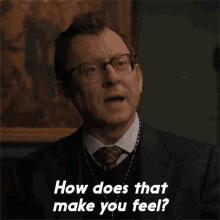If you suspect you have a mental illness such as anxiety, depression, or PTSD, you might be wondering if you should look into starting therapy or medication, or if there are other treatment options.
If you have tried managing things on your own and it isn’t working, now is the time to look into getting professional help. The good news is that there are a variety of professionally guided treatments available. The bad news is that can feel overwhelming and make it hard to know which is the right one.
There is no single “right” treatment choice – the right treatment for you may be totally different than what worked for your sister or your friend or your coworker. This blog will help you evaluate the different factors to consider in determining the type of treatment you want to pursue.
Evidence Based Practice for Mental Health
Some treatment options are considered evidence-based, which means there is research proving that they are effective in treating mental illness. Others are not evidence-based – of these, some we have evidence showing they are actually not effective, while others maybe just don’t have any research available (or enough research available) but they may still be a good option.
The two primary evidence-based treatment options are going to be therapy – whether that is individual psychotherapy, couples counseling, or a therapy group – and psychotropic medication.
There are also “Complementary and Alternative Medicine” approaches, often referred to as “CAM.” If you are someone who has reached the point that you are looking into therapy or medication, then CAM strategies will not be enough on their own, but they can be used as adjunct treatment options.
Therapy and Medication
One of the most common questions people ask when it comes to mental health treatment is, “Which one? Should I go to therapy or should I take medication?”
The research is very clear that most people experience the greatest benefit in the shortest amount of time when they do both. Many mental illnesses involve some degree of chemical imbalance in the brain. Psychotropic medication obviously helps to rebalance those chemicals, but evidence-based therapy modalities are also shown to correct this chemical imbalance.
Medication Without Therapy

One advantage of medication over therapy is that medication might be the fastest way to see improvement. This will depend on your symptoms and the type of medication you take since some take longer to work than others. Medication as a treatment option also requires less investment of time and money. You can usually get a prescription from your primary care doctor, rather than having to spend time searching for a specialized mental health provider. This makes it a more realistic option for many people, at least as a way to get started.
Why Therapy Is Better Than Medication

One key advantage of therapy over medication is that the benefits persist even after stopping treatment. In therapy you learn how to manage your emotions and actually work through the underlying cause of whatever problems you’re experiencing. On the other hand, when someone only takes medication without any learning, their recovery may be dependent on continuing the medication, particularly if the underlying issues haven’t been addressed.
Even though it will take longer to address those deeper issues, therapy can still often provide some immediate relief of symptoms. Just talking things out often lifts a weight off your shoulders, and your therapist can teach you coping strategies that can help you manage your emotions. For these to really make the most difference, you have to be willing to commit to practicing them and using them consistently between sessions.
So sometimes – until there is at least some improvement in symptoms – doing the work in therapy just isn’t possible. That’s what I always tell my therapy clients if they start working with me and are hoping to not take medication. I let them know that we can work on various coping tools to start and see how that goes, but if they are so depressed or so anxious that they can’t bring themselves to use the tools, or if engaging in therapy sessions is too overwhelming, then that’s when I would want to reconsider the possibility of medication. Some people simply need a bit of a boost first. This allows them to fully engage in therapy and be able to use different strategies and tools to continue feeling better.
Do therapists give medication?
No, therapists generally are not able to prescribe medication. Only a medical doctor, physician’s assistant, or nurse practitioner can prescribe medication.
Can a therapist recommend medication? A therapist also should not be recommending any specific medications. However, they can absolutely help get you connected to a prescriber, help you prepare for your initial and subsequent appointments in terms of important information to share and what questions to ask (including which medications or types of medication you may want to ask about), and can offer guidance on what to expect with various types of medications.
So if you’ve been wondering how to choose between medication and therapy, I hope this post has given you some insight into if one or both would be the option for you! If you’re considering therapy, you may want to read more about how to choose the right therapist for you. Whether you’re thinking about medication or therapy (or both), you will probably want to read more about paying for mental health treatment.
If you’re ready to work through your deeper issues and are looking for a therapist in Denver (or online for anyone living in Colorado or Georgia), you can learn more about my therapy practice here.
Leave a Reply
Contact
THANK YOU!
We received your information and we will be in touch soon. Please allow 48 hours response time.
